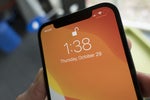Tech big wigs: Hit the brakes on AI rollouts

More than 1,100 technology luminaries, leaders and scientists have issued a warning against labs performing large-scale experiments with artificial intelligence (AI) more powerful than ChatGPT, saying the technology poses a grave threat to humanity.
In an open letter published by The Future of Life Institute, a nonprofit organization that aims is to reduce global catastrophic and existential risks to humanity, Apple co-founder Steve Wozniak, SpaceX and Tesla CEO Elon Musk, and MIT Future of Life Institute President Max Tegmark joined other signatories in saying AI poses “profound risks to society and humanity, as shown by extensive research and acknowledged by top AI labs.”






